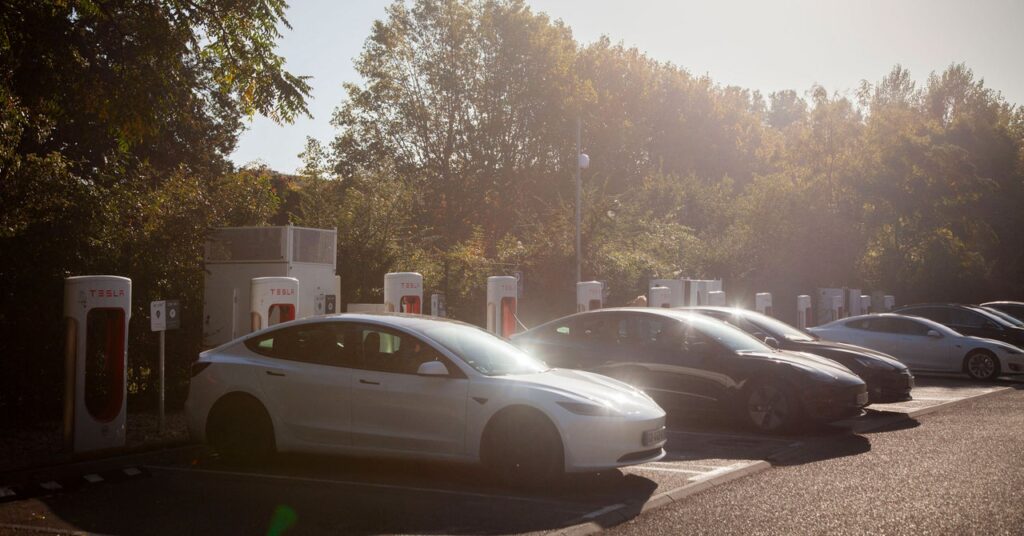Donald Trump picked up 15 electoral votes when he won Michigan on Election Day, another big win that helped to hand the Republican candidate his second presidential term. Both he and the Democratic nominee, US vice president Kamala Harris, spent a lot of time this fall campaigning in the critical swing state.
One consequence of this electoral quirk is that the candidates have said plenty about electric cars, and dropped lots of hints about how the electric revolution might fare during their administrations. Detroit is Michigan’s largest city, the center of the American auto industry, and the spiritual home of the American auto worker.
Now Trump—with the backing of at least a Republican US Senate—will retake control of the federal government, and it’s clear that his administration will take a different approach to electric vehicles than his predecessor, complicating the industry’s position as it attempts to electrify.
EVs aren’t going away. But their future is much murkier than it was yesterday.
What Trump Has Said
The president-elect has made conflicting statements about electric vehicles. During his nomination speech in July of this year, Trump pledged to “end the electric vehicle mandate on day one,” a reference to the Biden administration’s goal to convert half of all vehicle sales to EVs by 2030. The move would, Trump promised, save the US auto industry from “complete obliteration,” and slash US car prices by thousands of dollars. (EVs are by and large still more expensive than internal-combustion cars.) Trump has called federal spending on electric vehicles and their chargers a part of “the Green New scam,” a play on the US Congress’ bipartisan “Green New Deal” funding package. Earlier this year, he told a Michigan audience that the industry’s emphasis on electric vehicles would make it easier for China to take over the global auto industry.
But Tesla CEO Elon Musk has proved a reliable supporter, advisor, and moneyman for the president-elect. Trump, a transactional politician, seems prepared to repay him. “I’m for electric cars,” Trump said in August. “I have to be, because Elon endorsed me very strongly.” Tesla’s share price soared by 13 percent Wednesday.
Then there are the positions of the conservative Heritage Foundation. The right-wing think tank’s Project 2025 transition plan has been disavowed by the Trump campaign, but may still provide scaffolding for the administration’s policies. In a brief focused on the Department of Transportation, the organization criticized EV subsidies, including tax credits, and new fuel economy standards that attempt to reduce vehicle emissions over the next decade.
What Could Happen
It will likely prove difficult and time-consuming for Trump and his allies to undo four years of EV support. Because so many climate-related policies are enshrined in federal law, he will need help from Congress to nix them. Electric vehicle tax credits might be an easy first target. Republicans didn’t like those. But the Environmental Protection Agency and Department of Transportation’s stronger greenhouse gas emissions rules, finalized this year, have received support from the auto industry. Industry-friendly Republicans might not help Trump out there. Any funding for the factories that build electric vehicles and batteries that’s flowing into red states won’t easily be yanked.
The Trump administration will have control over funding from infrastructure and Inflation Reduction Act laws that has yet to be handed out. Targets there could include what remains of money that’s been promised for a nationwide electric vehicle charging network.


